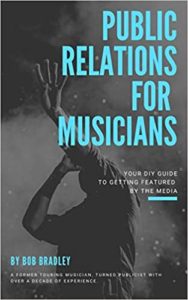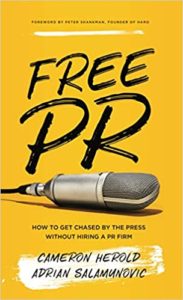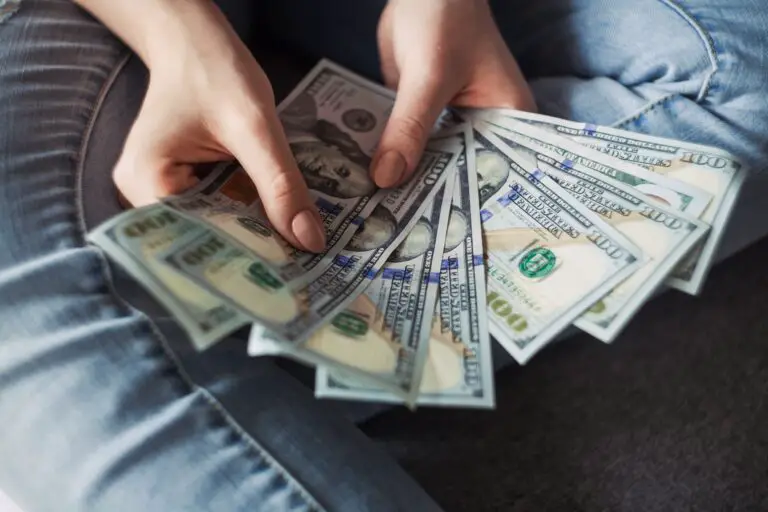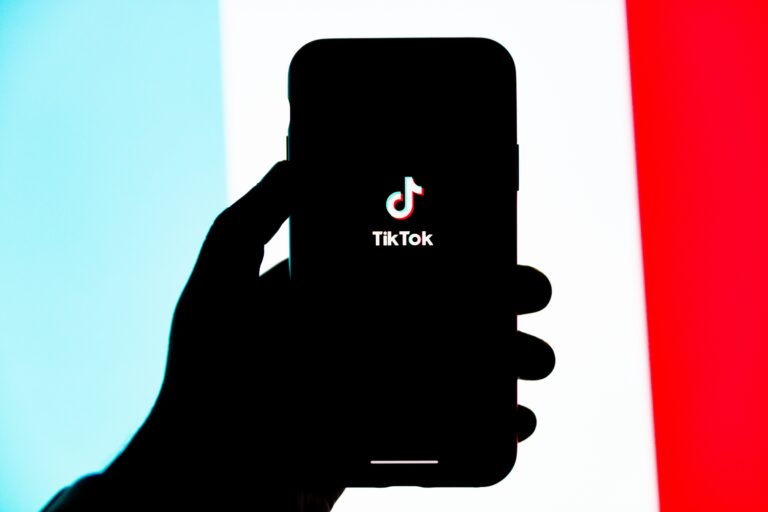Music Publicity: The Complete Guide
Have you ever wondered how bands get featured on the cover of magazines like Rolling Stone, Alternative Press, or any other industry publication? The short answer is often a great music publicist who knows music publicity.
What Does A Music Publicist Do? A Band’s music publicist creates press releases about upcoming or recent events to secure features like reviews or interviews in magazines, websites, TV, or podcasts.
A typical day includes planning, sending and responding to emails, and writing supporting documents to increase the likelihood of featured placement.
A lot of thought and foresight goes into each campaign, so I created this article to lay out the basics, whether you’re working from a basement or with a large firm. This article will walk you through:
- What a publicist does day-to-day
- The benefits of hiring a publicist
- How to get the best results
- Free DIY publicity tips
What is a Music Publicist?
A publicist is a member of a musician’s team responsible for co-crafting the artist’s story and getting it in front of journalists.
Publicists can’t guarantee features but have a tested strategy to increase the likelihood of coverage. This task may seem simple, but more goes into a successful campaign than sending emails.
Emails may be the main time-suck for many publicists, but email blasts are only part of what goes into the release campaign. Often publicity firms spent the first two weeks (or more) planning, strategizing, drafting, and laying out expectations before ever pressing the send button.
This complete process is part of an overall PR campaign.
What Is A PR Campaign?
A PR campaign is a series of activities handled by an internal team or public relations firm. The idea of a campaign is to improve a band’s relations with the public.
Publicity Firms work with independent bands and major labels as the main point of contact. Most contracts specify a specific project or time (often three months minimum) instead of a one-off task. This way, the PR rep can invest the necessary time and effort to maximize results for a specific release or tour.
Most features require a lot more work than a single email to secure, and campaigns at AGR Publicity usually look something like this:
Expectation Setting
This meeting or phone call is vital to steering the upcoming workload. It happens before any paperwork is signed and usually lasts around an hour. The call is for getting input, deadlines, and requests from all stakeholders, so it’s essential to know the details about:
- Upcoming projects/Deadlines
- How much lead time is available
- Any specific Outlet requests
- Which assets already exist and need creating (Bio, EPK, Pictures, etc.)
Planning
Preparation is the most critical part of any release campaign. We always ask the following questions before sending the first email.
- Accomplishments to be highlighted and why readers would care
- Several variations/spins for follow-ups
- Which style and size of outlet should be targeted for best results
- Which specific writers at those outlets would be the most interested
- Are smaller placements viewed as a success?
- Which assets to include so the writer’s job is easy
Build A Contact List
Work to know precisely which journalists you’re targeting, what sets this campaign apart, and tailor your pitch for their specific publication. Journalists often get 200 emails a day, so it’s crucial to stand out by being personal, developing relationships, and having unique spins.
Create Informational Assets
It’s time to make journalists’ lives as easy as possible. You’d be surprised how many publications directly repost your press release word for word. That’s a good thing. Ensure you’ve included links to anything a journalist might need to minimize the work to create a feature. Include
- Several high-resolution photos
- Bio,
- social media links
- Relevant information/specifics
- quotes from the artist
- A link to the music for streaming (don’t attach huge MP3 Files to an email)
Premier Requests
Reach out to specific major publications one on one for exclusive advanced coverage. These placements usually require 3-6 weeks of lead time. You’d be surprised how many editors will quickly respond to these requests. Create a totem pole from most desired placement to least and work your way down but always wait for an answer before moving on.
Media Blast Email
Write and schedule a press release bulk emailed to a tailored list of contacts most likely to cover the release. We’ll detail some tools to automate this process later in the article.
Follow-Up
After the initial wave of responses, manually reach out to specific journalists for a 2nd request. Sometimes a reminder is all that’s needed to secure a featured piece.
Depending on those you reach out to, you might be doing them a favor by giving them a story. It’s important to be amicable regardless of how many times you reach out to them.
Resend The Press Release
The second press release is a second bulk email 1-2 weeks from the first to keep the release top of mind and target journalists who might have missed it the first time (excluding anyone who responded already.) If possible, try to throw a new spin and subject line on the email, so it’s not an exact copy.
Schedule Interviews and Photographers
Once responses start coming in, it’s time to schedule calls between the artist and journalists. Organizational skills are paramount to navigating through multiple schedules.
Having a firm idea of schedules is ideal, as you will want to make one or two time suggestions when reaching out. This offer will save them time and take the decision-making pressure away from your journalists.
Verify Posts
Sometimes great features get stuck in limbo. Now’s the time to visually verify interviews and features live and correct. If any information is incorrect, now’ the time to send a gentile revision request.
Automated software like Caneldly is perfect for this case. The more you can automate as a publicist, the more time you spend on essential areas.
Solve Problems
There are almost always road bumps along the way, like photographers not being on the guest list, use of outdated photos, or missed deadlines. Work to be helpful and build relationships without being a pest.
If you grill the people you work with regularly, they don’t want to work with you. Work from a problem-solving focus as opposed to blaming other people.
Say Thank You
These journalists are doing you a HUGE favor. Many journalists are featuring you over an A-list celebrity. Always go above and beyond to thank them for spreading the word.
Maling some merch in a “Thank You Care Package” is a great way to show praise and build long-term relationships. You can also call them but try and avoid the less helpful “sending a thank you email” if possible.
The only time sending a thank you email is helpful is when the journalist is beyond swamped.
Rinse and Repeat
Most campaigns have several press releases building up to a significant project. It’s time to hit the drawing board for a new spin or story before repeating the above steps the following month.
We’ll go into specific online tools (like bulk email delivery programs) you can use to speed up some of this process later in the article.
This strategy has repeatedly secured an average of 24 placements a month per client. That’s a bit above average but might come from our small roster of clients simultaneously running less than ten campaigns.
The bulk of results come from the second or third follow-up email, so it pays to put in the extra manual work instead o just relying on an email delivery system like Mailchimp.
Here’s a great day-in-the-life video from Media Maven talking about what running a successful PR agency looks like. However, if you’re new to PR or have a small budget, I expect you’ll spend a lot more time in the nitty-gritty securing placements.
What Services Do Publicists Offer
Media outreach has changed drastically over the years. Major magazines used to have specific writers covering niche articles. Nowadays, most journalists wear many hats and often work for multiple publications.
Some journalists say they will feature you in exchange for direct payment. These music journalists are not who you want to work with.
Good journalists get payments from the outlets they write for. These people are known for writing skills, not their ability to squeeze people for money.
Standard service offerings from publicists (like us) include the following:
Digital Strategy
Publicists work towards creating a comprehensive digital outreach strategy. These can include social media posts, interviews with radio podcasts, and PPC campaigns.
The publicist’s goal is to publicize your music, making their broad role cover many bases.
Media Outreach
Outside of digital outreach, publicists will reach out to various music journalists and local radio stations to promote your band’s image. Consider them to b a music gateway between your crew and the media.
Exposure through the media is necessary for your band to get exposure. By offering a unique experience, your band makes an excellent case for itself.
Electronic Press Kit
An Electronic Press Kit (EPK) is a pre-packaged set of materials for media outlets, influencers, and everyone to easily promote you. It acts as a combination of bios, images, and other band details that you pre-approved for people to spread your name.
Publicists can show the world who you are with the push of a single button to download EPKs. Everything from your bio, photos, music, and past articles is in one awesome package. It’s the best way to make a perfect impression.
Press Releases
Press releases are your band’s general method of communicating with the public. If you want to send an update on upcoming shows, this is how you do it.
Music publicists are your connection to tons of publications for these releases. Think of them as your cool best friend who introduced you to all the music you love – but in the professional world.
Consulting
Many music publicists have gone through numerous bands, understanding what you need to succeed. When conquering the music industry, a good publicist can get you where you need to be.
Consulting services can also come from any music business socialists. Those who have experience in the industry can guide you along the right path.
Event Support
Photographers and journalists will be there with you wherever your tour may lead. Be it
national or global, your footwork is safe in our hands.
Playlist Promotion
Pair your music with ideal tastemakers and playlist curators. Digital services like Spotify, Pandora, and Apple Music are great ways to expose your band’s music playlist to the world.
Print/Online Advertising
Publicists often have strong relationships with websites and print magazines. Advertising services are uncommon, but sometimes discounted rates through people they work with are available.
Every PR rep is different, so check with them to find out their strengths and recommendations for additional services.
When Should You Hire A Music Publicist?
A few factors decide whether to hire a publicist and when to begin pitching. Nowadays, you don’t need to be an A-list celebrity to hire a publicist, but you need to be worth covering. Here are five signs it might be time to consider upping your PR efforts.
- New content to promote
- You have budget
- You’re receiving unprompted press inquires
- When you don’t have enough time for media outreach yourself
- Disaster relief
Without new content, a publicist doesn’t have much available to promote. The best time to start considering a new publicist is when you have content in the works that you want to push into the public heavily.
The most common example of the content for PR is an album rollout, which can include press for the following:
- Single releases
- Music videos
- Interviews
- Features
- Anything else you can do to get the word out before the album’s release
Often publicists will also promote an upcoming tour that coincides with the album rollout to advertise and help get the right press members out to your dates.
Lead Time and Content
One crucial factor attached to new content is lead time. You could have the best album in the world, but it could be tough to get it in front of the best possible people without proper lead time.
Working with a new publicist for new content to promote is only worthwhile if you give them a lot of lead time. Even the best publicists can’t land you suitable placements if they get your songs or video content just days ahead of their release. Try at least four weeks of lead time, but the more, the better planning and strategy.
Content and One-Off Music Singles
Content can also come in single releases, live music sessions, and tours. Getting your first publicist can be a big step for a band, and you should take it seriously.
Partnering with a publicist isn’t an easy solution to getting your name out there and will still require some work (and money) on the part of the band.
The most important prerequisites include:
- Strong social media presence
- Streaming numbers with decent growth (especially in markets outside of your hometown)
- Your band’s ‘story’/bio loosely structured
- Some regional tours planned within the year/around the release
- A budget (See Part 3)
Publicists can help you craft band bios and pitch your story to journalists and publications, but bands should be able to do their part in answering the “why?” question when it comes to releasing new music.
If you meet all these needs, you’ll be in a great position to get the most out of your partnership with your publicist.
Our friend Atreyue Ryken wrote an excellent piece for Indie Band Guru that will help you understand when to start hiring a publicist.
Why Hiring A Publicist Is A Good Idea
Bands have multiple talented musicians. On the music business side of things, it’s essential to think of your publicist as part of your crew.
This situation means you wouldn’t want to write that sick progressive rock song without a drummer. Without a drummer, you’d have to make up for the lost time by drumming yourself.
Many music publicists also have pre-established relationships with a Rolodex of contacts. It isn’t enough to be a talented musician; you need to find a way to promote yourself through the proper exposure.
Having someone with those connections creates greater ease for your process. Many of those connections are on the road, saving you time knowing who to contact to become part of a show.
Logistics while on tour can be tricky, but knowing people and going down the route before can help. A good music publicist can help with the following:
- tour opportunities
- Increase credibility
- Bigger show guarantees
- Getting a Working visa for international shows,
- Building a foundation for your band’s future
- boost your digital footprint.
PR through music publicists have no quick, direct return on your investment, but a great placement can benefit your career for years to come.
What You Need Before Hiring A Publicist
A good music publicist won’t fall into your lap and solve all the media problems you have. Typically, they have to work with bands willing to put in the same effort.
This process starts with a bio draft and professional photos in your EPK. The bio draft gives the publicist an idea of what you want your band image to be.
The publicist refines these ideas into something that people will find more exciting or approachable. People rarely use the first draft of anything you write, but it gives them a good start.
Professional photos should also be in both horizontal and square formats. Having multiple picture variations enables people you work with to have options when showing you off on their media.
You’ll want to be sure these photos also depict your band doing something interesting. The whole “crossed arms and slightly tilted head” thing is a bit played out.
You also need to know what to look for in your publicist. A Google search is a good start, but you’ll also want to speak with fellow bands to see about their experience.
You’ll likely want to get someone with experience, but there are some eager newbies out there that can help. While they don’t need a college degree from the best college of music, an educational background typically is a good sign of how serious they are.
Music Publicists and Your Budget
The average cost for a short-term PR campaign is roughly $500 to $1000 monthly with a minimum commitment of three months. Some prices can go up to $3000, but it depends on the level of services.
For a permanent hire (usually handled by large-scale record companies), you can expect a publicist’s salary to range from $20 to $100 thousand. Because most bands don’t have the budget for that, you’ll likely be signed onto a label.
Publicists aren’t free, and you will need a bit of a budget depending on your PR objectives for your project.
Most bands are ready to take on PR after treating their music like a business start-up. Start-ups require a lot of effort reinvesting profits to promote growth.
Just as you’d save up your earnings to print merch, buy new gear, and record in a studio, you’ll want to allocate some of your budget toward PR efforts as well.
Another way to think of your PR budget is alongside your creative budget. When figuring out what you’ll need to spend money on, you’ll want a good ratio of creative budget (recording, instruments, production, etc.), as well as promotion budget (PR, marketing, advertising, etc.).
There are a few ways to break up this promotion budget, and if you aren’t releasing through a label, you’ll want to be reasonable about the exact spend breakdown.
How To Develop A PR Strategy
A PR strategy varies heavily from band to band. Developing one is no joke, but it has evolved significantly during the digital age.
This strategy creation starts by creating a plan and identifying goals. These goals need to be specific and intelligent (such as growing your Facebook follower count by ten thousand).
Specific goals are a great start, but you need to be sure you target those who are your fans. Identifying your target audience is based on your current audience by seeing what different music they view.
An easy way to do this is by going on Spotify and seeing bands they associate with you. However, if you lack the follower count to make any data determinations, you might have to make some assumptions or ask your current fans what they like.
You can use this data and target social media pages, blogs, magazines, podcasters, and other media personnel that meet your target audience. If you’ve already created PR campaigns, you can use that information to determine how to tweak this campaign.
PR campaigns with bands are pretty unique, as you have the option to be transparent about your creations or mysterious. In the early days, you’ll want to give the media something to chew on, as your band lacks the clout to be able to be mysterious about things.
Offering a single on your latest album is usually enough, and you can spread it amongst target blogs to tease people for the announcement of a new album. The idea is to give people something that results in exposure to an exciting thing you are doing. This includes tours, performances, and new albums.
The digital age also introduces another exciting concept: different forms of media.
Earned vs. Owned vs. Paid Media During PR Strategy Creation
The three general forms of media include the following:
- Earned: These are media mentions you deserve due to existing clout. When fans recognize you or your favorite music blogs talk about your new upcoming things, you gain this.
- Owned: Owned media are websites and social media pages you control. Controlling everything on these pages gives you great opportunities to make announcements to loyal fans.
- Paid: Paid announcements and advertisements regarding your latest album or tour are on this list.
A bonus to any PR campaign is the “As Seen on Oprah” effect. Let’s say Oprah decides to feature your project on an episode of her TV show. Sure it’s great that she spread the word to her audience and a few thousand listeners, but the real value is being able to borrow her clout for the rest of eternity.
As relationships grow over time, the likelihood of being featured in more considerable blogs increases. You can leverage these marquee names in press kits, tour guarantees label pitches, and
Unfortunately, there’s a point of diminishing returns. Most publications don’t want to cover the same band every month, so even your most robust connections may pass. This downside also happens PR firms representing several dozen clients. I’ll touch on some specific red flags to look out for later in the article.
It’s up to you to leverage the new placements for better opportunities.
What Type Of Results Can I Expect
There are no guarantees in music publicity. Any guarantees regarding placement typically are done in exchange for money, which is morally questionable and (in some cases) illegal.
To increase your potential results, you’ll want to follow this two-prong approach:
- Step one: talk to everyone (tiny blogs included)
- Step two: your efforts scale as your band grows
For an example, check out this interview of Aslyus, our last discussion on this platform. In 2020, they talked about releasing their new single on our blog.
As the blog continues to grow and gain success, they gain more potential exposure as a result. While we aren’t quite as big as Oprah, connecting with multiple blogs and their audience is on the way to getting that exposure.
Many of our successful placements have come from smaller blogs run by music fanatics who often work for free as a passion project. Many of these writers go on to work for major publications.
This is where the “big wigs” step comes in, as you suddenly have connections at a major publication. Keeping these people on your contact list is a great way to handle publicity.
Can You Handle Publicity Yourself?
Contacting bloggers, magazine writers, and podcasters is easier than ever, so tackling publicity yourself is doable.
However, keep in mind these media contacts get 200+ emails a day. Focusing on what you do best (hopefully creating music) is often preferred.
A band’s true potential is released when they find the right music business crew to work with.
So while you can handle it yourself, others likely have more experience and more room to take this for you. Multitasking is a great way to lose multiple fronts, so try and get some outside talent when possible.
Concerns and Bad Expectations of Music Publicists
Just because you know someone at a publication doesn’t mean you should expect free publicity. To do so is illegal and morally questionable, often leading to you and your connections losing.
There is no saying you can’t try, but don’t expect automatic results out of this. However, their inability to get you a spot is not a red flag.
Keep these tips in mind when avoiding those flags:
Not All Features Are Equal
I value a quick write-up in some college kid’s blog differently than an Instagram takeover with Hot Topic or print article in New Noise Magazine. My concern is that one prominent placement far outweighs ten small ones, but a per-article payment structure favors quantity over quality.
Labels might already have PR
Some labels already have PR (either in-house or external), so it would be tough to avoid overlap and generally frowned upon. Duplicate publicists are usually avoided by announcing the signing and then handing off the campaign to the label’s PR team.
Still, label expectations depend on the band’s contract. Non-exclusivity isn’t a problem for me; I just want to avoid stepping on the label PR’s toes since it’s all about long-term relationships.
We would need to reduce our service offering
We request upfront payment because the bulk of the work and planning happens before we get any results (band bio rewrites, writing press releases, consulting, and hundreds of manual follow-ups). I’m concerned that results-based payment would prevent me from building a solid foundation for the best results.
How To Write The Perfect Press Release for Music Publicity
A big part of being a music publicist is the creation of press releases. You already know from our earlier discussion that press releases are announcements from the band sent out to media outlets.
Here are some quick tips if you hire or have a music publicist.
- Have multiple press release templates available for different events. These can include single release, album announcement, tour announcement, change in performance details, etc. It will save you time when making essential announcements.
- Stick with professional-looking band photos (ideally from your EPK) and avoid silly-looking fonts and styles.
- Be sure you have an editor available or be ready to proofread each release. A grammar error is a quick way for your band to look ridiculous on a large scale.
- Don’t be too bold when making your press releases. You can excite what you have, but don’t call yourself the best band of all time.
- Whenever you send a press release, make sure you have a good reason for having one. If your band member adopted a new dog, great! You might want to leave that one to a social media post.
How To Increase Your Changes Of Getting Featured
A big part of PR work is being found on featured playlists. Spotify, Pandora, and other music services are eager to feature new and exciting artists on their list. Featured music playlists typically have a curator involved, giving you a point of contact to deal with.
Outside of that, you have numerous blogs and local newspapers ready to display the right band. This starts by finding the right point of contact, which is easier if you have a music publicist who knows people.
However, not everyone has the bonus of getting personalized contacts. Here are some quick tips you can steal to increase your chances of being featured:
- Send personalized emails to any POC you know about. Express knowledge of their work by mentioning a blog that you liked of theirs or a previous feature of a band you enjoyed.
- If you need to find a POC, do what you can to look up contact information on sites like LinkedIn. Finding out who you need to contact is just as important as finding what you need to say.
- Have your elevator pitch ready. Much like a meeting, you need to be able to explain why your band is worth their time in under 30 seconds. Share this short pitch with people in the industry to see their take.
- Post your music across multiple platforms to get extra exposure. In the early days, you cannot expect to earn a great deal of money when streaming. Exposure is your ultimate goal with the idea of drawing new fans.
In many cases, you will find that having a small number of loyal fans might be better. Reaching out to microbloggers and small influencers is often more fruitful as a result.
How To Find Journalists To Cover Your Music Publicity Release
One of the more tricky aspects of gaining exposure is to find journalists. Whether you are a media publicist yourself (or you take the role of one in your band), you will want multiple journalists across many publications.
You can start by using Google News to find existing journalists that cover bands similar to yours. Google “[Band Name] Interview” or “[Album Title] Review” and check out the Journalist’s byline by clicking their name.
If possible, you will want to contact them through public information on their byline. If their contact information isn’t available, you can move on and look them up on social media.
Twitter is the most popular resource, as multiple bands and journalists make their information public here for a reason. People often expect some contacts, so be straightforward, polite, and display why your band should be their next feature.
Facebook pages are also just as good and less expected. You’ll likely find less success on Pinterest, but don’t be afraid to use Instagram and other social media platforms that have private messaging.
You can also use a media database that contains the contact information of various journalists of interest. Here are a few examples:
You can also seek to gain connections with the media by providing some information upfront. HARO (Help A Reporter) is one way to establish yourself as a source of knowledge in the music industry.
However, you will need to swing the interview to ask the Journalist about other options. So if you want a more direct approach, stick with media databases.
Additional Resources To Bolster Your Knowledg of Music Publicity
 1. Bob Bradley’s Book Public Relations For Musicians
1. Bob Bradley’s Book Public Relations For Musicians
Bob Bradley, Fake Figures guitarist and head of Bradley Publicity & Marketing, recently released a guide delving into music PR and his experience throughout the industry. The book is a great read and develops a fantastic foundation for your first campaign. You can grab a digital or paperback copy on Amazon.
2. Free PR Webinars From Haulix
James Shotwell is the Director Of Customer Engagement at Haulix, a music promotion software. He also leads fantastic panel-style discussions with some of the industry’s most influential publicists. An entire archive is available on the site’s blog Haulix Daily. It’s a goldmine of expert information and advice if you want to hear about current trends and what the experts are currently doing.
3. This PR YouTube Channel
If you’ve ever wanted to see behind the curtain of a PR firm Media Maven is the place to be. Christina Nicholson puts up weekly videos with tons of great information whether you’re a musician or an industry exec. Her channel is a great resource for anyone thinking about doing DIY publicity and what an actual day in the life looks like.
 4. Adrian Salamunovic’s Book Free PR
4. Adrian Salamunovic’s Book Free PR
If you’re on a shoestring budget this book is a great starting point. It goes into extreme detail on a step by step plan for any release strategy (regardless of industry). If you’ve ever wanted to see how fortune 500 companies secure the best placements this book is your one-stop-shop. It’s a quick read that you can grab a copy on Amazon.
5. Cameron Harold on the Mike Dillard Podcast
Salamunovic’s co-author Cameron Harold spoke about our #4 pick on an episode of the Mike Dillard Podcast. The episode goes into exact details on how the author scored 5,000 stories over six years for his company 1-800-Got-Junk. It’s great for anyone who wants to bring PR ideas into their day job.
Want More Help?
If you’re considering hiring a publicist for your next release I run a music PR firm called AGR Publicity.
Through strategic partnerships with thousands of journalists around the globe, we spread the word near
and far. With 67% of our network based in the United States, we prioritize niche coverage tailor suited to each band’s specific requests and can fine-tune live event campaigns down to specific states.
If that sounds like a good fit you can check out AGRPublicity.com for more info on how we can help.
Our connections are based in hard rock and metal but we can give a personal recommendation to industry titans that might be a better fit.
If you have any questions or think we got something wrong feel free to email contact@agrpublicity.com anytime. We look forward to hearing about your next campaign whether it’s DIY or with a firm.








